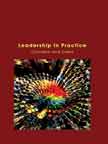Fabio Rosa - Bridging the Electricity Divide in Brazil |
ICMR HOME | Case Studies Collection » Leadership and Entrepreneurship Case Studies » Short Case Studies » View Detailed Pricing Info » How To Order This Case » Business Case Studies » Case Studies by Area » Case Studies by Industry » Case Studies by Company Please note: |
||
ExcerptsBackground Note
Rosa recognized that the major drawback in using solar energy was its high cost. To make it cost effective, Rosa decided to package the solar energy system with some utility just like he had packaged the mono-phase system with irrigation in Palmares... Renting Solar EnergyWith the success of the solar-powered electric fencing systems, Rosa decided to use solar power for rural electrification instead of persuading private electric companies to support his mono-phase distribution model. Rosa conducted research in that direction in the late 1990s. The STA conducted an extensive market study in six villages for eight months. They found that 65% of rural families spent at least US$ 11 per month on non-renewable energy sources like kerosene, diesel, and batteries whereas the remaining 35% could not afford to spend over US$ 10 a month... |
Case Studies Links:-
Case Studies,
Short Case Studies,
Simplified Case Studies.
Other Case Studies:-
Multimedia Case Studies,
Cases in Other Languages.
Business Reports Link:-
Business Reports.
Books:-
Textbooks,
Work Books,
Case Study Volumes.



